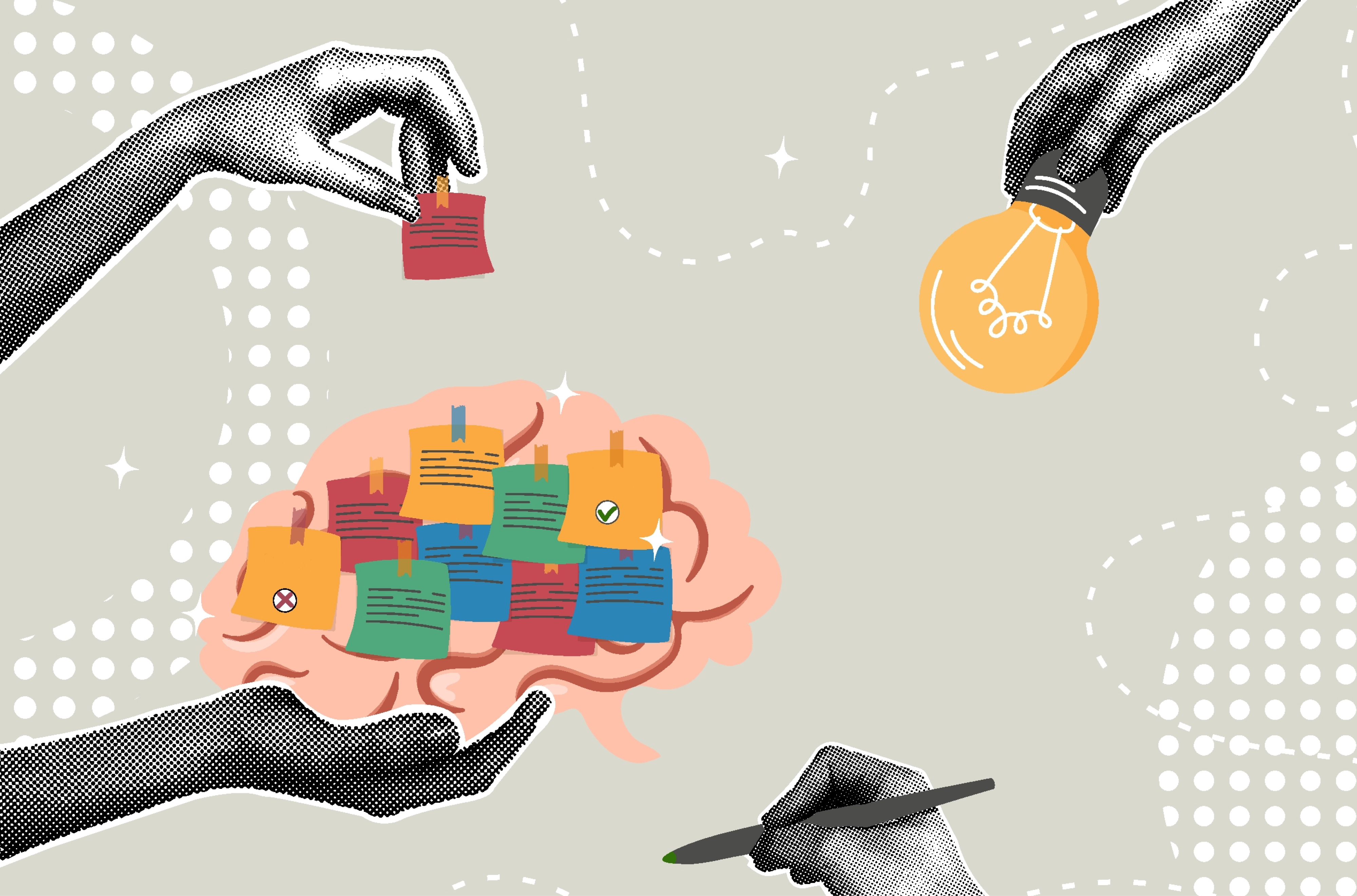You aren’t the only one suffering from imposter syndrome
Peer support groups, institutional workshops and positive mentorship relationships are a few of the ways you can curb the feeling of ‘just not good enough.’

Have you ever felt that you are just blundering through your graduate studies, waiting for someone to realize that you do not belong, when in fact you are meeting the requirements and succeeding? Do you shrug off compliments, and simply excuse past successes as lucky breaks? If you find yourself thinking you’re not good enough, or are constantly comparing yourself to your colleagues, then you may suffer from imposter phenomenon. Also referred to as imposter syndrome, it involves repeatedly feeling inadequate – fraudulent, even – when in reality, you are quite successful.
The term imposter syndrome implies that the issue lies in the individual suffering from this situation, while the term imposter phenomenon shifts the onus to the environment in which the individual is experiencing this issue. As such, while it is important to practice self-care to cope with these feelings, they must also be addressed at a higher level, and positive working environments must be nurtured at the source. This is particularly important for groups that are more prone to imposter syndrome, including women and minorities.
You are not alone
Jenny Flanagan, a postdoc in biophysics at the University of Michigan, remembers feeling like she was constantly waiting for someone to “catch” her in an act of incompetence while she was completing her doctoral studies in physical chemistry at the University of Texas at Austin, and as such sought validation from her advisor and colleagues. “It really got under my skin the first time I presented at a conference in front of other experts,” she said. “I’d always think ‘everybody in my lab is too nice to say anything, but someone here surely will.’ Once again, it never happened (because my results were sound), but that was a thought that constantly nagged me, even when I was successfully publishing papers, mentoring other students, and consulting with other labs on their instrumentation.”
Dr. Flanagan further discussed the struggle of pursuing novel research with little literature precedent. “It is scary being the first one to publish something and risk someone finding out later that your story is wrong! But it also occurred to me that scientific progress is pretty much just continually finding out that the people who did this research before you didn’t know the whole story.”
Starting the discussion with peers
Imposter phenomenon is rampant among graduate students, but it is not always openly acknowledged. Facebook support groups such as Women Scientists and Grad School Memes with Relatable Themes foster much-needed discussions on the topic by providing an open forum for women scientists and graduate students respectively to celebrate successes or commiserate issues in their career journeys. It can also be helpful to admit this vulnerability to other members of your cohort, to sympathize with them over these feelings, and to know that you are not alone in feeling this way. In fact, far more individuals might feel – or have felt – this way than you might expect. Starting this discussion, either online or in-person, might help others overcome this obstacle as well.
Certain feelings of inadequacy can be alleviated with the help of supportive colleagues. Bolster your fellow researchers by promoting their work and praising their accomplishments by sharing them on social media. Groups such as the (@BoldWomenInChem) showcase the work of different female chemists at the University of Texas at Austin. Current graduate students and professors can pave a brighter path for future graduate students by promoting awareness and healthier work environments.
“My peers have been such an amazing support, we lift each other up and help each other to see all our accomplishments and remind each other of our skills and worth as researchers,” says Dominique Maucieri, who is pursuing her master’s in marine community ecology at University of Victoria.
Curbing the issue through mentorship and workshops
The issue of imposter phenomenon can also be addressed at the institutional and research group level.
It is worth checking out the workshops offered by the graduate student offices and student associations at your institution. For example, the University of Toronto offers monthly two-hour virtual workshops for their graduate students, and has an upcoming workshop on Eventbrite.
Even so, Hunter Lowe, pursuing his master’s in physics at the University of Northern British Columbia, offers the perspective that despite university efforts to mitigate imposter phenomenon, its existence is innate in the nature of graduate studies: “It looks like more and more workshops are being offered to help guide students along a healthy path during their graduate studies. Though I think the issue remains since students never have any idea how much work they should be getting done at any point in time.” The asymmetry of graduate studies and the highly varying experiences of individual students make it difficult to compare progress.
Universities and professors hold an important position at the forefront of this discussion. “My supervisor tries to lead discussions, seminars and meetings to help students in our department with overcoming and working through their feelings of imposter syndrome,” says Ms. Maucieri. She further suggests pursuing these resources through discussions with peers and mentors, as well as through virtual seminars. Her supervisor also suggested she start keeping all of her emails that contain compliments or praise. “So when I am feeling like an imposter I can go back to those emails and see that that is just not true.” This can extend to award notifications, letters of reference and supportive messages from friends.
Small, but significant changes can make all the difference for some researchers. “They gave me my own office space with my name on the door. I think that helped,” says Matthew Gill, who is pursuing his master’s in earth sciences at Memorial University.
Victoria Veas Roy is pursuing a master’s in molecular and cellular medicine at Université de Montréal, and offers a similar experience from a co-op internship in a biotech company. Her experience with her supervisor’s patient, detailed explanations and belief in her abilities helped her to gain confidence and proficiency in the lab.
Dr. Flanagan agrees that compassionate mentorship plays an important part in curbing imposter phenomenon. Her supervisor shared this with her: “You are a student and you are here to learn, and if you already knew what you were doing, grad school would be a waste of time.”
What is your experience with imposter phenomenon and how can we shift the climate to bring out more support and positivity in graduate school? Comment below!
Featured Jobs
- Canada Excellence Research Chair in Energy TransitionsUniversité du Québec à Trois-Rivières (UQTR)
- Canadian Politics - Assistant ProfessorUniversity of Toronto
- Canada Excellence Research Chair in Forest Biodiversity Conservation (Full Professor)University of New Brunswick
- Psychology - Assistant Professor (Clinical Psychology)Queen's University
- Education - Assistant Professor (Distance Education)University of Toronto














Post a comment
University Affairs moderates all comments according to the following guidelines. If approved, comments generally appear within one business day. We may republish particularly insightful remarks in our print edition or elsewhere.
1 Comments
Thanks for posting.
I’ve often consoled students with imposter syndrome, saying, “If you don’t have imposter syndrome, you may not be a real academic.” Leading lights in my field have confessed to me that they are still afraid that, one day, someone will expose them for the fraud that they feel they surely are!
If you suffer from imposter syndrome, at least you should know that you are not alone.
It seems to be one of the hazards of the job.